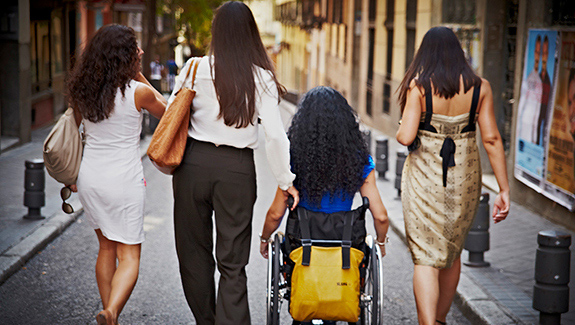Coping Tactics After Your Spinal Cord Injury
You can successfully cope with the emotional challenges after a spinal cord injury. Explore tactics and advice from other people in similar situations.

Learn tactics and tips for coping after a spinal cord injury.
It is normal to experience a variety of emotions following a spinal cord injury. Your adjustment will undoubtedly take time and patience. How quickly you adapt to the changes in your body will vary, and your friends and family members may also adjust at different rates.
Many people experience a period of mourning much like the death of a loved one. Others have difficulty believing that the injury is permanent, and treat the recovery period as a temporary inconvenience. You may also experience depression and anger. The way you respond to your injury will be unique to you. Your emotional adjustment may take several months.
Coping tactics that can help
After your spinal cord injury, you may feel physically and emotionally exhausted. It’s also overwhelming. It may be hard to remember a lot of information thrown at you. Learning new skills, like using a catheter, isn’t easy either and can take time.
Here are some ways to help yourself through this potential rough patch:
- Confide in a friend, loved one, or healthcare provider about your thoughts and feelings
- Keep a journal of your challenges and successes, and how you feel about your journey
- Speak with other people with spinal cord injuries to share ideas and experiences. Your rehab team can help you meet other individuals in your community.
- Set small and realistic goals, and celebrate reaching them
- Avoid using alcohol, drugs, or smoking as a way to reduce stress and anxiety
If you are having trouble adjusting, you should talk to your healthcare professional. Professional psychotherapy can provide the help you need to get back to an active, fulfilling lifestyle.
More spinal cord injury coping advice
It always helps to get advice from people who have had similar experiences. Here are a few coping tips from others who have successfully adapted to their new life:
- Ask questions. Write down your questions and the answers. You can also have a friend or family member write them down for you.
- Be patient with yourself and with those around you. It will take time for you to feel comfortable with and adjusted to the changes created by your injury.
- Find someone you can connect with and who can support you emotionally. This might be a nurse or doctor, a friend or family member, or a member of a support group.
- Be proactive. Ask for what you need and learn about the ways you can adapt to your injury.



